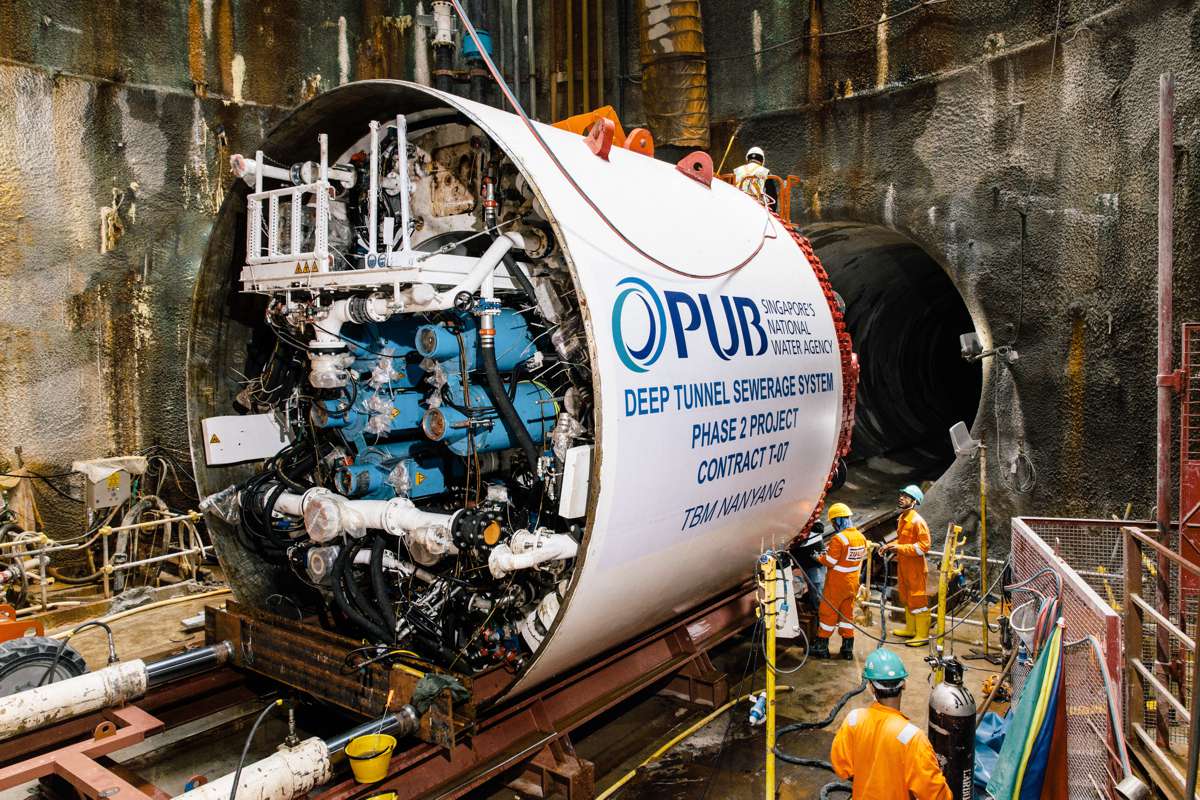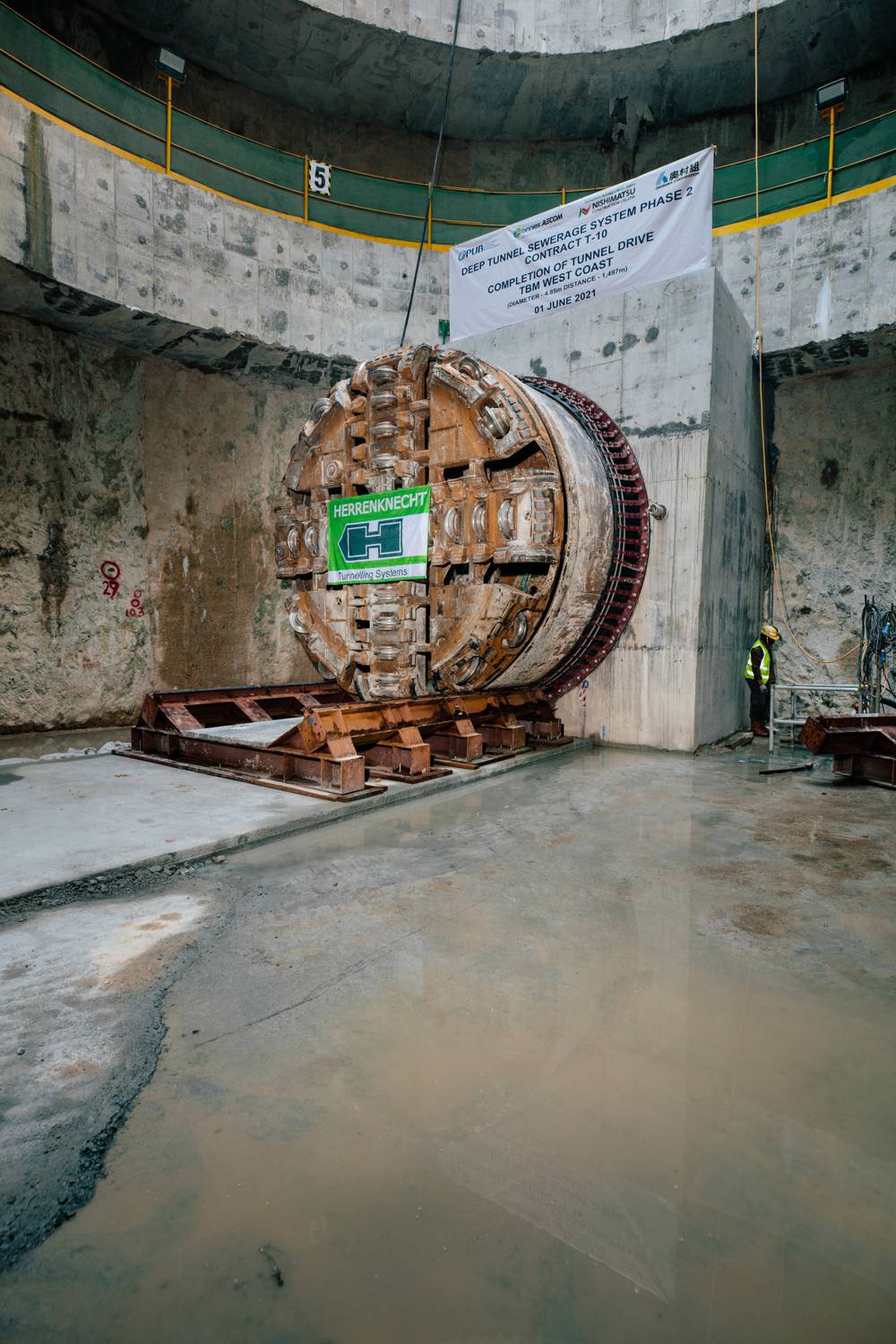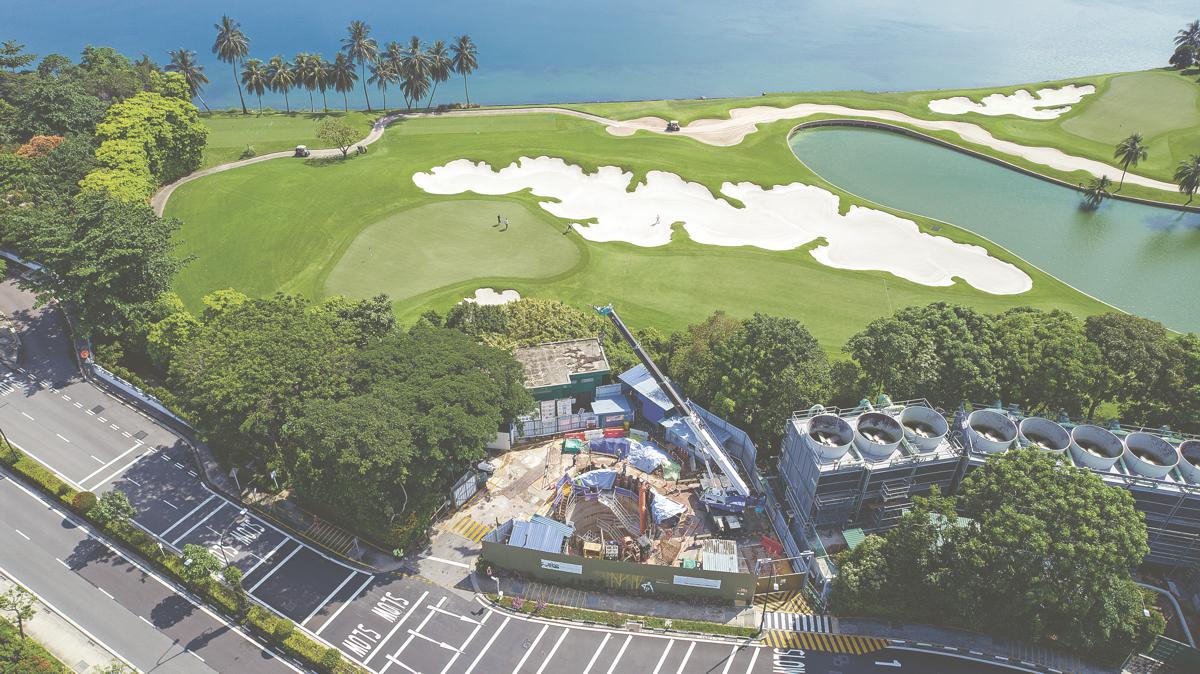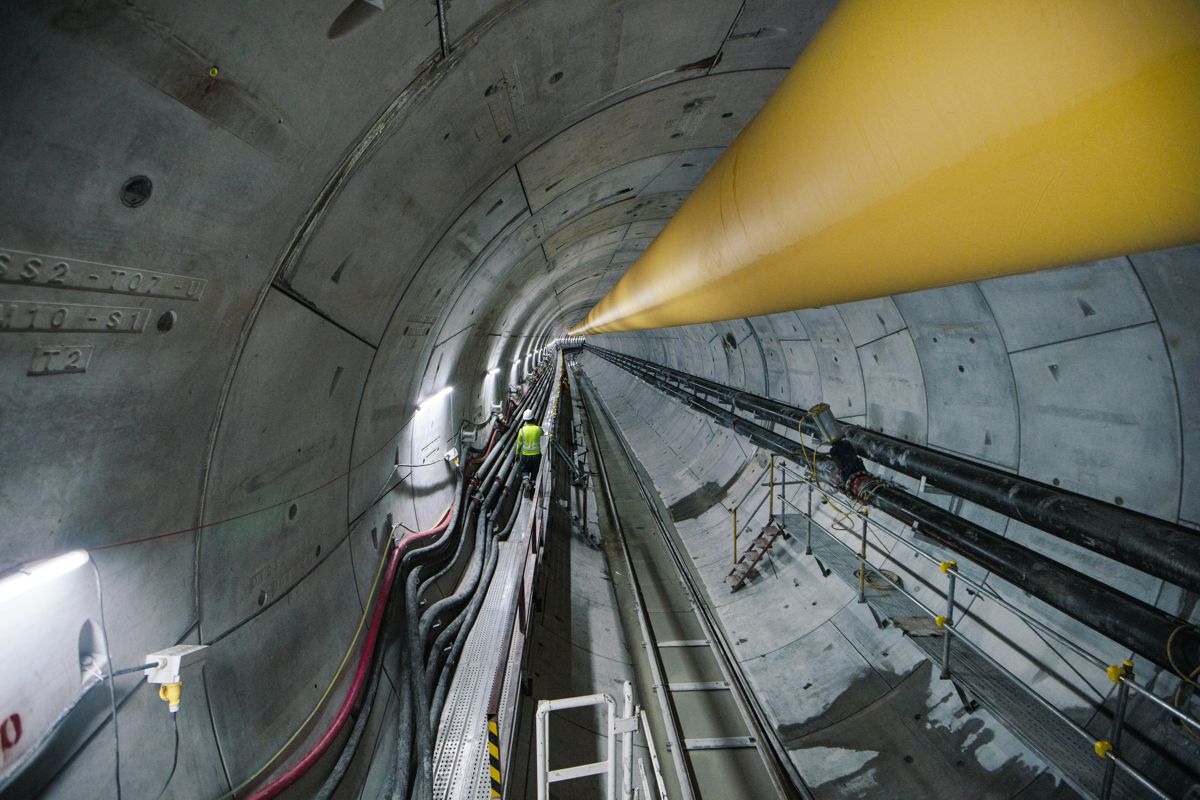Sewage superhighway tunnelling completed by HERRENKNECHT Singapore
Milestone for the epoch-making “Deep Tunnel Sewerage System” (DTSS) project in Singapore: the five contractors have completed tunnelling works for the second construction phase of the gigantic sewer pipe system. The final breakthrough took place in July 2023.
A total of 19 Herrenknecht tunnel boring machines (TBMs) had excavated and lined some 49 kilometres of tunnel since 2019. In addition, a Herrenknecht Vertical Shaft Sinking Machine (VSM) was used.
As an island state, Singapore obtains a significant portion of its water supply from state-of-the-art rainwater and used water treatment. Back in the 1990s, Singapore’s National Water Agency, PUB launched a massive project to strengthen the nation’s water security: when completed, the “Deep Tunnel Sewerage System”, or DTSS for short, will include a total of approximately 200 kilometres of newly built sewers running up to 60 metres deep underground. It is designed to meet Singapore’s long-term needs for used water collection, treatment, and reclamation.
This underground system collects used water from homes and industries and conveys it entirely via gravity to state-of-the-art water reclamation plants without the need for additional pumping stations. The newest of these is currently being built in the Tuas industrial area and will have a capacity to treat of up to 800,000 cubic metres of sewage per day. Phasing out the intermediate pumping stations and other aged used water infrastructure will also free up around 150 hectares of land in the densely populated metropolis (around 8,750 inhabitants / square metre), for higher-value use.
Marking the completion of tunnelling works, Goh Si Hou, Chief Executive of PUB, said: “As one of the most water-stressed countries in the world, the ability to effectively collect and recycle our used water in a closed water loop has been a game-changer in our quest for water security. The Deep Tunnel Sewerage System is not only an engineering feat, but a key pillar in strengthening Singapore’s water resilience to meet the long-term challenges of climate change and growing water needs.”

49 kilometres of tunnel for DTSS 2
PUB is implementing the DTSS project in two phases: in Phase 1 (DTSS 1), between 1999 and 2008, 48 kilometres of main tunnel and 60 kilometres of link sewers were constructed in the eastern part of Singapore.
Back then already, five Herrenknecht EPB Shields excavated 28 kilometres of tunnel. The second phase (DTSS 2) is now extending the system in the south and west of the main island by a further 100 kilometres of sewers, of which just under 49 kilometres were excavated by tunnelling machines from Herrenknecht. Construction for DTSS 2 officially began in April 2019.
The five contractors involved completed tunnelling in the summer of 2023. DTSS 2 is expected to be operational two years from now.

Herrenknecht TBMs defy complex geology
With Herrenknecht TBMs having proven themselves in Phase 1 already, in the second phase of the project the decision makers for all five construction lots once again opted exclusively for mechanized tunnelling technology from the manufacturer in Schwanau in the south of Germany.
18 Mixshields and one EPB Shield (Earth Pressure Balance Shield) with diameters between 4.50 and 7.56 metres were used to bore the sewage collectors and line them with segments.
Herrenknecht also supplied 12 separation plants for the Mixshield drives and provided comprehensive support services throughout the entire project. This included, for example, remote access to individual machines, enabling them to be monitored and controlled remotely.
Among the challenges for machines and miners was the city state’s complex geology. The “Jurong Formation,” for example, consists of sandstone, siltstone, mudstone, limestone, dolomite and some conglomerate, which are extremely folded due to tectonic plate movements. As a result, diverse rock types with different weathering grades often alternate along a tunnel alignment and even in the cross section of a tunnel.
“In close cooperation with the customers, we therefore adapted the design of the TBM to the complex geological conditions,” explains Dirk Schrader, Herrenknecht’s General Manager Asia Pacific.
Special solutions were also required for construction of five of the 24 shafts in Tunnel Contract T-11 with diameters between 10 and 12 metres. In this particular section, with depths of up to 60 metres there was high water pressure the shafts constantly had to withstand. “For this reason, for the first time in the Asia-Pacific region, a Vertical Shaft Sinking Machine (VSM) from Herrenknecht was used for sinking the shafts,” elaborates Schrader.

25 years of Herrenknecht in Singapore
DTSS1 and 2 are further beacons in a success story of Herrenknecht tunnelling technology in Singapore spanning a quarter of a century: since 1998, Herrenknecht TBMs have been used again and again at numerous jobsites for subway and electricity tunnels. Tunnelling for the subway extension by a large diameter machine (Ø 12,680 mm) is due to start next year.
Tunnel boring machines from Herrenknecht have excavated a total of 49 kilometres of new sewer lines for Phase 2 of the “Deep Tunnel Sewerage System” in Singapore.

Project Data
- Client: Public Utilities Board (PUB)
- Contractors: Ed. Züblin AG, Singapore Branch; Leighton Contractors (Asia) Limited (Singapore Branch); Nishimatsu Construction Co., Ltd, Singapore Branch; Penta Ocean Construction-Koh Bros JV; Shanghai Tunnel Engineering Singapore STEC
- Application: Sewage
- Drive length: Phase 1: 28km, Phase 2: 49km
- Geology: heterogeneous soils: Jurong Formation (sandstone, siltstone, mudstone and limestone, containing groundwater)
Phase 1 Machine Data
- 5 × EPB Shield (Diameter: 4,450 mm – 7,200 mm)
Phase 2 Machine Data
- 11 × Mixshield
- 1 × EPB Shield
- 7 × AVN Machine – Diameter: 4,235 mm – 7,560 mm
- 1 × VSM12000
- 12 × separation plant




























